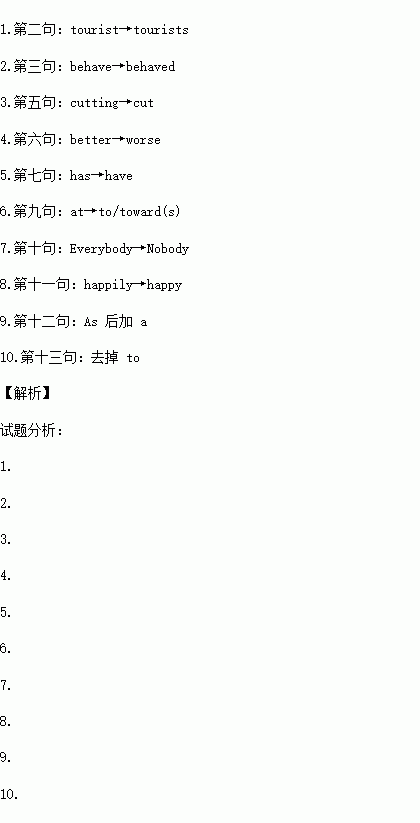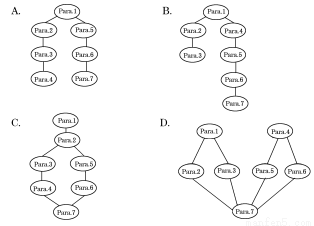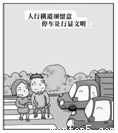题目内容
短文改错
Beijing has lots of famous tourist attractions. Every year many tourist come here to enjoy its beautiful scenery and rich culture. But several years ago, visitors behave badly. Some talked loudly in public and threw litter everywhere. Some picked flowers, cutting down trees and hurt animals. And even better, some painted on the walls and smoked in the woods.
Luckily, things has changed. Rubbish is always put into dustbins. People are friendly at animals. Everybody smokes in the woods. All these changes make us happily. As student, I think we should know it's our duty to protect the environment. Let's to change our behavior when we travel.
练习册系列答案
相关题目




